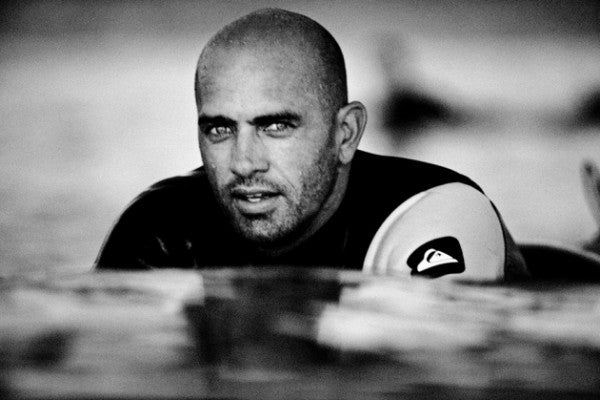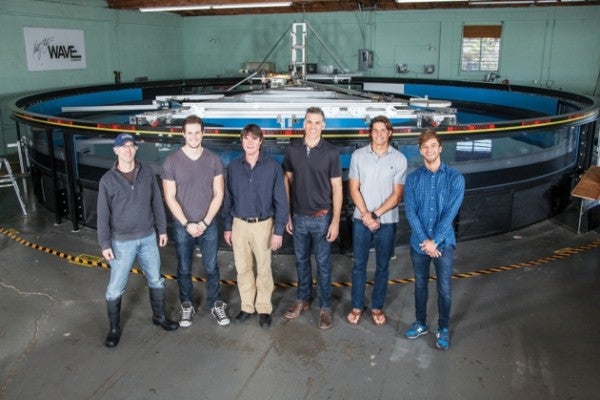USC Researcher Engineers Perfect Man-Made Waves
A specialist in fluid dynamics teams with pro-surfer Kelly Slater to create endless, perfect waves for surfers.
USC engineering researcher Adam Fincham PhD ’94 has been designing a machine to create the perfect wave every surfer dreams about.
Turns out that was the easy part. The bigger challenge has been to churn out waves like the ocean does, in different sizes, shapes and intensities.
“Initially, we just were out there to create the best possible, biggest kind of wave,” says Fincham, an associate research professor at the USC Viterbi School of Engineering. “And now we realize what people really want is this variability in the wave. So we’ve been able to devise a system that lets us have better control of the waves and really tailor them for the level of the surfer, from a professional to a beginner.”
Fincham is an aerospace engineer specializing in geophysical fluid dynamics—the study of flow and motion in large bodies of liquid, like oceans. Seven years ago, Fincham teamed with legendary pro surfer Kelly Slater on a quest to create a Magic Mountain of surfing: a park for the public offering a circular pool that delivers a perfect wave on demand. The alluring vision of the Kelly Slater Surf Experience, complete with its own island, promises a celebration of beach culture and surf lifestyle.

The project is close to fruition, says Fincham, now part of the Kelly Slater Wave Company. Testing in Los Angeles on a prototype 40 feet across shows that “everything will scale up as we predict” in a full-size wave pool, which requires five acres, he says. “We’re 100 percent confident it will work.”
To create waves, the system uses a unique system of hydrofoils that run along a track around the perimeter of the circular pool. Ideally, two waves would be created simultaneously at opposite points on the pool. Surfers who wipe out would have enough time to get up before the next wave comes around.
But funding is less predictable. Skeptics see an endless wave machine as a pipe dream. The team is working on a less expensive system that could be implemented sooner, Fincham says, though details on that technology are confidential.
The wave pools will be ideal for training, Slater has said, because surfers won’t have to wait for the next perfect ocean wave to practice advanced maneuvers. According to Fincham, even the large circular shape simulates the peak surfing experience because “it’s very similar to a continuous point break.” Surfers seek out natural point breaks on the coast because “the wave kind of curves in …and focuses the energy into a tighter spot, creating a slightly bigger wave.”

Still, can the real surf experience, often described as a spiritual communion with nature, be replicated on a man-made wave?
“We don’t see it so much as an amusement park,” says Fincham, a native of Jamaica and self-described amateur surfer. “We try as hard as we can to create a vibe that is along the spirit of true surfing, as well as you can in an artificial environment.”



